ecology

AMOOSED: a moose odyssey
When director and ethnologist Hana Nováková encountered an elk, it changed her life. And she wasn't the first. For centuries, people across continents and cultures have been fascinated by this ancient totem animal, one of the largest mammals in the northern hemisphere. Whereas in the past they wanted to conquer it, today they tend to listen to it. The director's cinematic odyssey is the result of several years of searching for the secrets of the moose. It leads from Czech forests through a Russian domestication station to the territory of the indigenous peoples of Canada. A collage of stories told from personal, spiritual, and scientific perspectives shows the moose as a guide between worlds, a symbol of balance and renewal, and a possible answer to the question of how we can heal our relationship with nature.“Filming animals across the planet is an extraordinarily epic undertaking—all the more so when it involves a ‘process film,’ i.e., the unfolding observation of events whose outcome we often cannot predict, even though we know for certain that they were triggered by the filming itself.” — Hana NovákováSource: Dok.revue
director: Hana Nováková
original title: AMOOSED: losí odysea
country: Czech Republic, Slovakia
year: 2025
running time: 76 min.
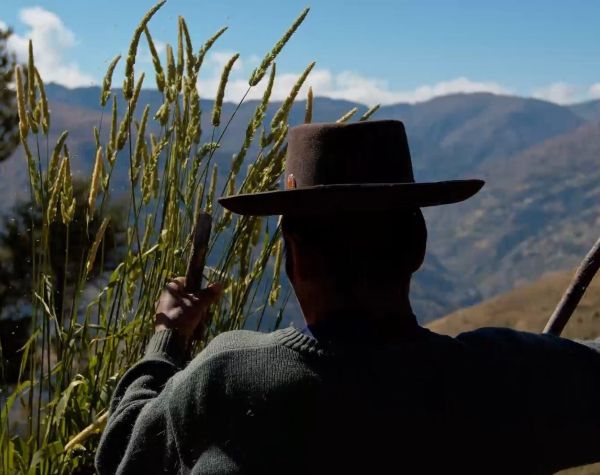
AXOMAMA
The name Axomama refers to the Inca goddess of potatoes. In the mountainous regions of Peru, her place of origin, this food permeates various spheres of the lives of the local people. This anthropologically conceived documentary attempts to capture the inseparable connection between potatoes and Peru’s famous colonial history, culture, and traditional beliefs. “Central to her research are the questions; how can we better understand ownership and agency in space through the experience of the body? … How do we form identities in relation to places where we don’t have histories?” — Tracy Valcárcel’s website Source: Tracy Valcárcel’s website
director: Tracy Valcárcel
original title: AXOMAMA
country: Canada, Peru
year: 2025
running time: 26 min.
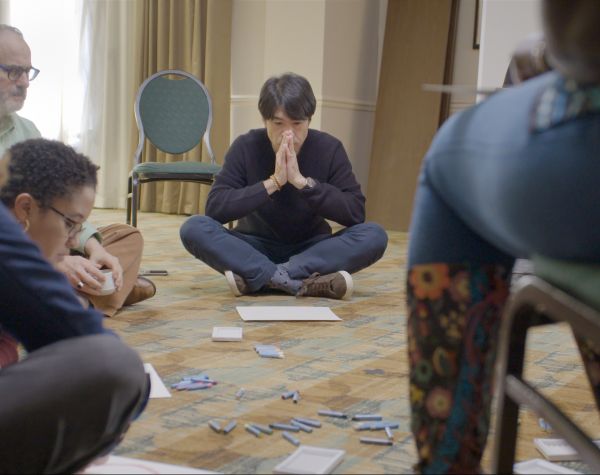
Climate in Therapy
This observational, documentary-comedy study presents a surreal encounter between leading global climatologists, climate scientists, and scientific authorities who are subjected to a facilitated meeting in a godforsaken hotel in New Jersey. This inverted team-building exercise aims to present academics as feeling human beings who, like millions of other people, experience climate grief and fear for planet Earth. The initially awkward emotional encounters lead to enriching conversations that focus not on disasters and numbers, but on experiences and emotional responses. The trajectory of helplessness, denial, hope, and acceptance is accompanied by humorous moments of human interaction. “This film shows that even those who are supposed to be doing something about climate change are allowed to share their feelings and uncertainty about the future.” — Sean Patrick Kelly
director: Nathan Grossman
original title: Climate in Therapy
country: Sweden, Norway
year: 2025
running time: 64 min.
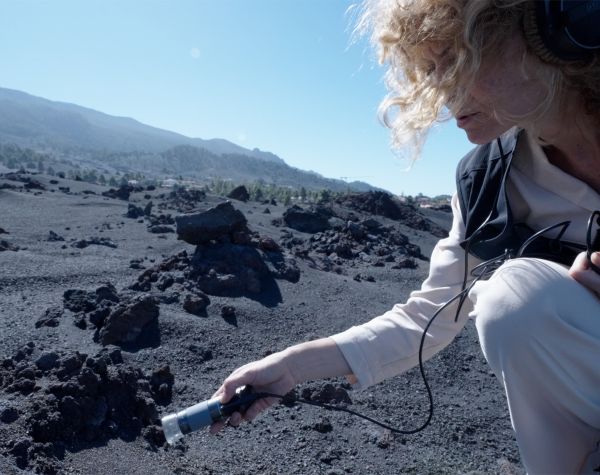
Do Rocks Dream of Flying?
Do the physical properties of rocks change in the presence of humans? Filmmakers follow the work of a scientist who listens to changes in sound frequencies in a vast wasteland after a volcanic eruption. Her geoacoustic research prompts reflections on the possibility of consciousness in inanimate objects, and their mutual communication. “The summit of Mount Everest is marine limestone: only a prejudice could make us think the earth beneath our feet is not alive.” — Conrad Anker, mountaineer
director: Mathieu Ciulla, Simon Zorraquin
original title: Do Rocks Dream of Flying?
country: Spain, France, Argentina
year: 2025
running time: 8 min.
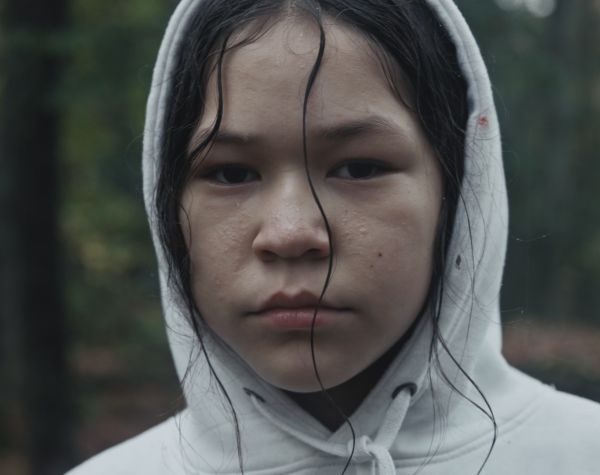
Forested Future
The Menominee tribe is connected to nature through their shared wisdom of caring for trees and forests. The revival of traditional logging methods and efforts to preserve permaculture freedom clash with the prevailing approaches of extensive logging for human needs. The complex topic of the relationship between human communities and forests is viewed from many perspectives – architects, loggers, teachers, economists, and activists explain our essential civilizational connection to trees as guardians of the landscape and memory. This educational documentary offers hope in the form of examples of natural recultivation and sensitive care. “When I talk about the environment, I am not talking just about dirty rivers or climate change or acid rain. I mean the people as well. Therefore, I am very interested in rural communities and how they live with their environment and what they gain from it. So it took me naturally to how we deal with the world’s forests.” — Fred Pearce, environmental journalist
director: Petr Krejčí
original title: Forested Future
country: United Kingdom, Czech Republic
year: 2025
running time: 90 min.
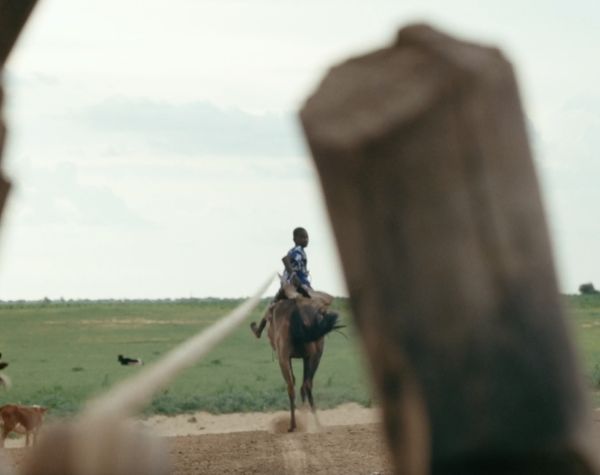
Guardian of the Well
In mid-2024, Chad experienced its worst drought in decades, most of the livestock died, people moved elsewhere, and the city disappeared. A chance encounter at a water well in the desolate Batha Prefecture opens a window into the situation of a Central African country affected by climate change. “The droughts and floods in Chad aren’t isolated – they reflect broader climate change driven largely by industrialized nations.” — Bentley Brown
director: Bentley Brown, Tahir Ben Mahamat Zene
original title: Biir Gardi
country: Chad
year: 2025
running time: 5 min.
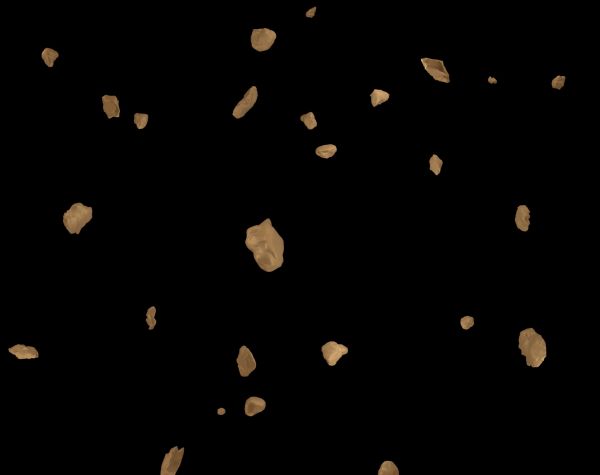
Red Dust
Several times a year, the sky above France turns red. These are grains of sand from the Sahara, and they can resemble a starry sky, or the graininess of a television screen. However, they contain radioactive cesium-137, which was created when the French tested nuclear weapons in Algeria. This testimony, which was never supposed to leave the military base, shows the impact of war on human society and the landscape. “With my films I want to make complex (invisible) social, political, and economical issues visible.” — Katja Verheul
director: Katja Verheul
original title: Red Dust
country: Netherlands
year: 2024
running time: 17 min.
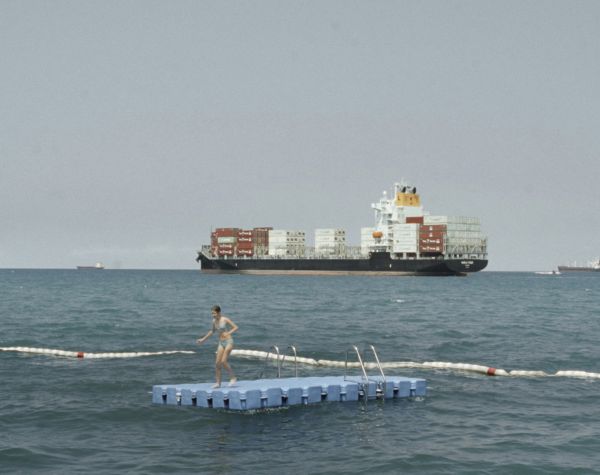
Seablindness
90% of everything we consume is shipped to us by boat. Seablindness explores the interstitial space of ports where land meets the sea and capital circulates. On a journey along the varied edges, we intercept a radio call from stranded seafarers. This documentary poem explores ecological anxiety. It is not, however, about those who feel it, but for them.
director: Tereza Smetanová
original title: Seablindness
country: Slovakia
year: 2025
running time: 29 min.
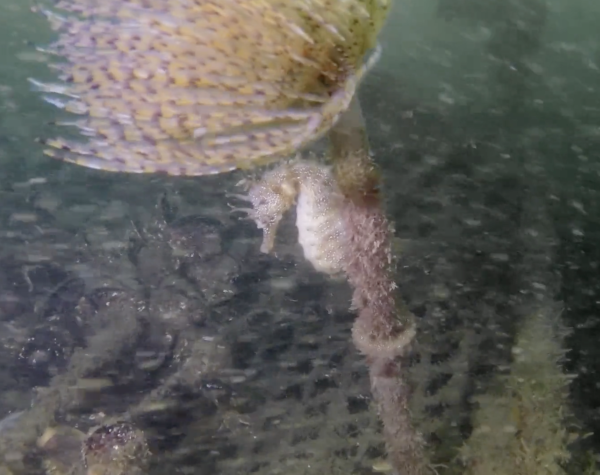
Sweet and Salty
The life of a small coastal community is changing beyond recognition. At least that’s how it seems to an old fisherman, as he watches the dire consequences of climate change on his long-standing source of livelihood. For the filmmaker, the disappearance of the seahorse – nature’s litmus test for clean water – becomes a symbol of humanity’s destructive activity. “Documentary-making is like shifting lenses for me, shaping both my craft and my humanity.” — Carmen Tofeni
director: Carmen Tofeni
original title: Agridoce
country: Portugal, Romania, Belgium, Hungary
year: 2025
running time: 16 min.
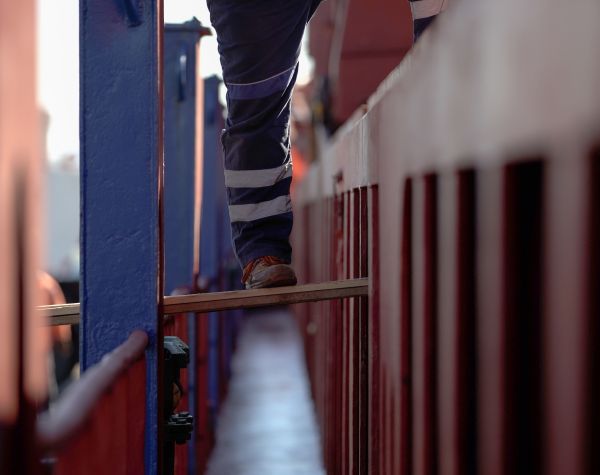
Tonnage
When humans learned how to make fire, they began their journey toward inventions and industrial revolutions. The director of the film observes the constant presence of this primal spark in the work of Greek dockworkers, who unload tons of material from ships, material that is used to make objects we encounter in our everyday lives. “With a direct reference to the exact meaning of Tonnage, a word describing the weight in tons, especially of cargo or freight, the film traces the vexed semantics and archives of such a weight, historically and symbolically.” — Thessaloniki International Documentary Festival
director: Yorgos Kyvernitis
original title: Tonnage
country: Greece
year: 2024
running time: 19 min.










